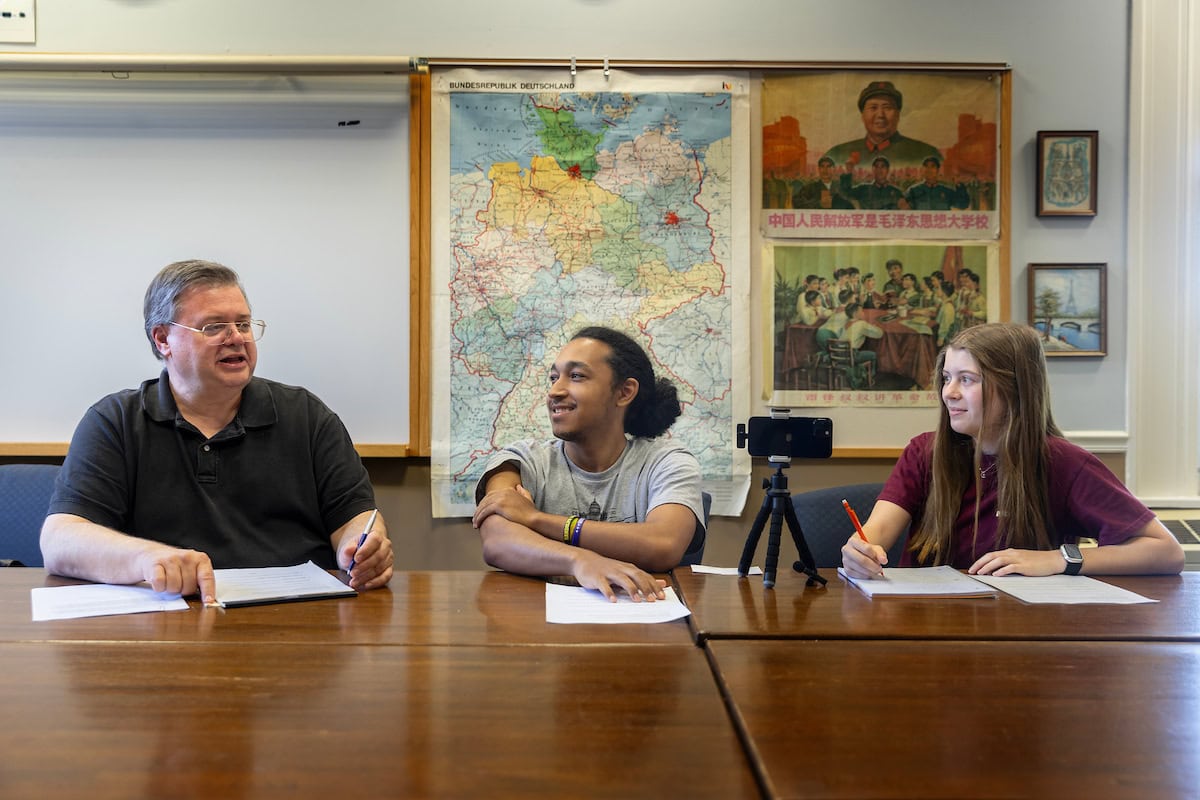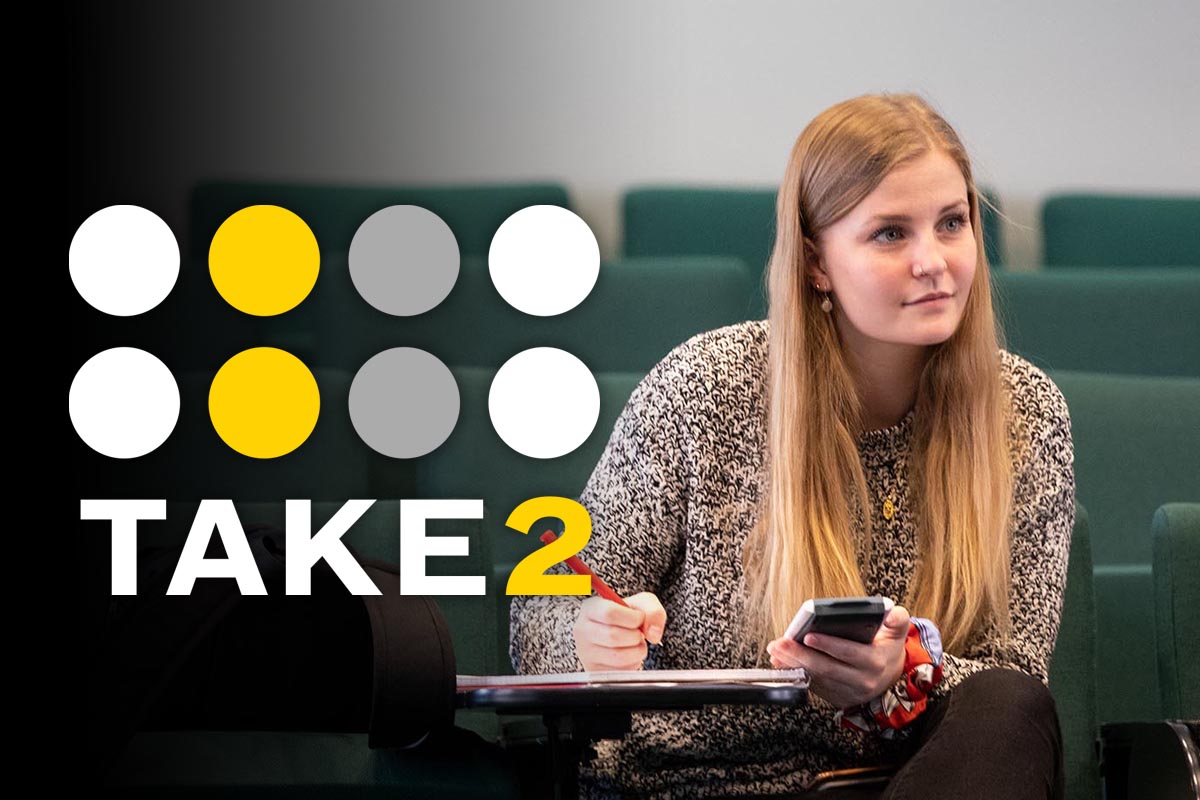Bringing the past to life: Professor, students team up to create an oral history of the College
Randolph’s Summer Research Program is a competitive, paid program that gives students the chance to work closely with faculty members conducting research in their areas of interest. This story is part of an ongoing series featuring the work being done on campus this summer.

History professor Gerry Sherayko, Tristan Gregory ’25, and Maegan Lloyd ’26
History professor Gerry Sherayko has wanted to conduct an oral history of the College for years. All he needed to make it a reality were the right students.
He found them in Tristan Gregory ’25 and Maegan Lloyd ’26.
“I was so impressed with these students who had just started at Randolph, a transfer student and one from high school who already has an associate’s degree,” he said of Gregory and Lloyd, respectively. “I thought they would be so great to work with on this project.”
Gregory and Lloyd, both history majors, are working with Sherayko on an oral history of Randolph-Macon Woman’s College as part of Randolph’s Summer Research Program (SRP).
Their project is focusing not just on the day-to-day campus life but also on issues of gender, race, and class as they have evolved in the United States over the College’s long history.
Most of their work this summer is focused on doing on-camera interviews with people connected to the College.
“They can learn a lot by doing this,” Sherayko said. “It isn’t just the history of the College. Part of it is the skills one gets by trying to gather raw material. Processing it will be the more difficult part. This will be an ongoing process, and we want to collect as many videos as possible. Then we have to figure out what themes are emerging and how to present them.”
There have been histories of the College written before—one was published in 1951 and another in 2010—but there has never been an attempt to create an oral history featuring the stories of alumnae, faculty, staff, trustees, and supporters.
“There’s a personality in oral histories that you can’t get through reading a report,” Lloyd said. “It brings the past to life. I also think it’s really interesting because you’re talking to these people who will one day not be here.”
Gregory agreed.
“It’s an aspect of history we are actually creating,” he said. “We’re making firsthand accounts, where 50 years down the road, this can be used as a resource and our names will be on it.”
They go into each interview with a list of pre-planned questions and have worked diligently to not insert themselves into the narrative.
“The goal is not to have a conversation recorded. You can do that, but it’s not oral history,” Sheryako explained. “You really want the interview subject’s voice and don’t want them to adjust anything they want to say by what you say.”
They’ve mostly interviewed alums—many thanks to Reunion coinciding with the start of SRP this year—as well as current and former faculty members.
“It’s been so great talking to people who started working here in the early 2000s or in the 1990s, 1980s, or even the 1970s,” Sherayko said. “For me, it’s also very emotional. I’m talking to either former colleagues or current colleagues, asking them to reflect upon their life here at this college, where I have worked for 26 years.”
Gregory, too, enjoyed hearing from the faculty.
“I get nostalgic, and I wasn’t even here,” Gregory said, singling out some of the retired professors they’ve spoken with. “I’m really captivated by hearing from them. I didn’t have a class with John d’Entremont or Jim Muehlemann. But man would I have loved it.”
Tags: Class of 2025, college history, faculty student research, Gerry Sherayko, history, SRP 2024, summer research, summer research 2024
